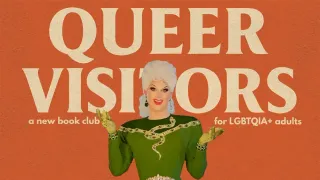
Jul 31
Azzi Fudd’s Custom Tribute Tee for Paige Bueckers Sparks Joy in Women’s Basketball
READ TIME: 3 MIN.
When Azzi Fudd arrived courtside at a Dallas Wings versus New York Liberty game on July 29, she wasn’t just there to support her team—she was there to make a statement. Fudd, a rookie phenom and former UConn Huskies basketball star, sported a custom white t-shirt reading “I 💙 PB,” with Paige Bueckers’ jersey number five inside the blue heart . The playful and heartfelt shirt quickly drew attention from fans in the arena and on social media, where images of Fudd's outfit were widely shared and celebrated .
The moment marked more than just a fashion statement. It was a visible, joyful affirmation of her relationship with Dallas Wings guard Paige Bueckers, her former UConn teammate and now partner. The two athletes, who had recently confirmed their relationship during the WNBA All-Star Weekend, have become icons not only for their on-court prowess but also for their open embrace of their identities and love .
Azzi Fudd’s public display of affection is emblematic of a broader shift within women’s basketball and professional sports at large. As LGBTQ+ athletes increasingly speak openly about their lives, gestures like Fudd’s help foster a culture of acceptance and celebration. For many in the LGBTQ+ community, seeing high-profile athletes like Fudd and Bueckers expressing their love without reservation is deeply affirming .
This visibility is particularly significant in the context of the WNBA, a league with a proud history of LGBTQ+ advocacy and inclusion. Fans and advocacy organizations alike have lauded the couple’s openness, noting the positive impact such representation has on young people and aspiring athletes who may be navigating their own journeys of identity and self-acceptance .
The custom “I 💙 PB” t-shirt, now trending among fans and on social platforms, is the latest in a series of sartorial nods Fudd has made in support of Bueckers. Earlier this year, Fudd posted a mirror selfie with a phone case labeled “Paige Bueckers’ Girlfriend,” drawing both admiration and critique online . As fashion becomes an increasingly powerful tool for self-expression among athletes, such gestures blur the line between fandom, partnership, and personal branding.
Retailers and NIL (Name, Image, and Likeness) platforms have quickly responded to this new wave of athlete-driven merchandise. The UConn NIL Store, for example, highlighted Fudd’s custom shirt as part of a broader trend in athlete-inspired apparel, signaling both commercial opportunity and cultural resonance .
Social media reactions to Fudd’s courtside tribute have been passionate and varied. Many fans and fellow athletes praised the public celebration of love and authenticity, while others critiqued the move as “too much” or overly personal . Yet, for every critical comment, there were dozens more in support, with LGBTQ+ fans in particular expressing gratitude for the visibility and joy that Fudd and Bueckers bring to the sport .
Athletes’ willingness to share their stories publicly has a ripple effect, inspiring conversations about inclusion, respect, and the ongoing fight for LGBTQ+ equality—not only in sports, but in all aspects of society .
As women’s basketball continues to grow in profile and popularity, the visibility of LGBTQ+ athletes like Azzi Fudd and Paige Bueckers serves as a beacon for inclusion and progress. Their story demonstrates the importance of fostering environments where all athletes can show up authentically, love openly, and thrive both on and off the court.
The custom shirt may be a small piece of fabric, but its message—a declaration of support, joy, and pride—resonates far beyond the sideline. For the next generation of LGBTQ+ athletes and fans, it’s a reminder that sports can be a place for everyone, and that love, in all its forms, belongs at the heart of the game.






